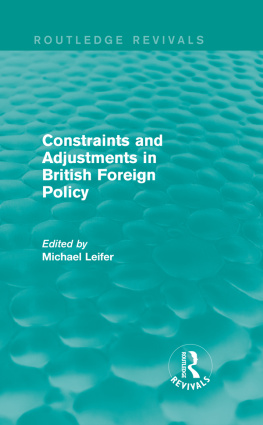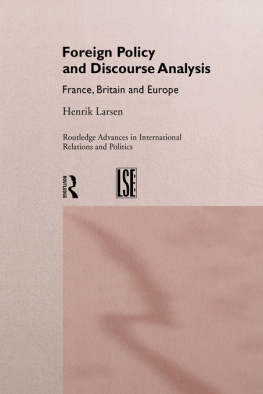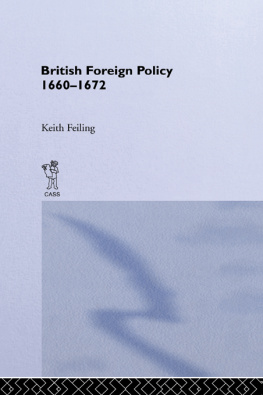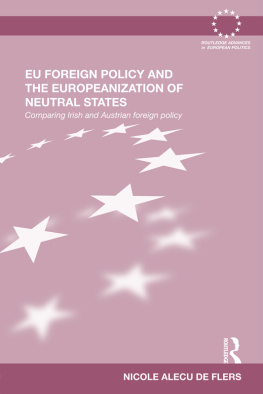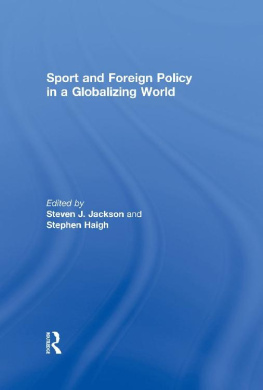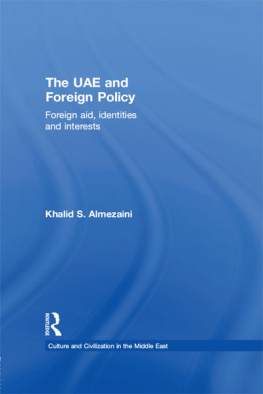Routledge Revivals
Constraints and Adjustments in British Foreign Policy
This book, first published in 1972, offers a detailed analysis of the post-war formulation of foreign policy, as Britain sought to detach itself from its imperialist past and moved towards a European future. The contributors all experts in their fields together provide a comprehensive commentary on the complexities of the external pressures that moulded British foreign policy during these years. The subjects covered highlight the dichotomy of, and interaction between, residual obligations and new goals and national aspirations. These include the examination of past policies regarding the Commonwealth, South-East Asia, NATO , and the special relationship with the U.S.A., as well as multi-national companies and Britains place in the changing global society. This reissue will of particular interest to students and academics researching the history of British foreign policy, international diplomacy and development, and post colonialism.
Constraints and Adjustments in British Foreign Policy
Edited by
Michael Leifer
First published in 1972
by George Allen & Unwin Ltd
This edition first published in 2013 by Routledge
2 Park Square, Milton Park, Abingdon, Oxon, OX14 4RN
Simultaneously published in the USA and Canada
by Routledge
711 Third Avenue, New York, NY 10017
Routledge is an imprint of the Taylor & Francis Group, an informa business
1972 George Allen & Unwin Ltd
All rights reserved. No part of this book may be reprinted or reproduced or utilised in any form or by any electronic, mechanical, or other means, now known or hereafter invented, including photocopying and recording, or in any information storage or retrieval system, without permission in writing from the publishers.
Publishers Note
The publisher has gone to great lengths to ensure the quality of this reprint but points out that some imperfections in the original copies may be apparent.
Disclaimer
The publisher has made every effort to trace copyright holders and welcomes correspondence from those they have been unable to contact.
A Library of Congress record exists under LC control number: 73154409
ISBN 13: 978-0-415-70965-1 (hbk)
ISBN 13: 978-1-315-88493-6 (ebk)
Constraints and Adjustments in British Foreign Policy
edited by
MICHAEL LEIFER
LONDON GEORGE ALLEN & UNWIN LTD
Ruskin House Museum Street
First published in 1972
This book is copyright under the Berne Convention. All rights are reserved. Apart from any fair dealing for the purpose of private study, research, criticism or review, as permitted under the Copyright Act, 1956, no part of this publication may be reproduced, stored in a retrieval system, or transmitted, in any form or by any means, electronic, electrical, chemical, mechanical, optical, photocopying, recording or otherwise, without the prior permission of the copyright owner. Enquiries should be addressed to the publishers.
George Allen & Unwin Ltd 1972
ISBN 0 04 327039 5 hardback
0 04 327040 9 paper
Printed in Great Britain
in 10 on 11 Point Plantin type
by Alden & Mowbray Ltd
at the Alden Press, Oxford
Acknowledgements
The idea of commissioning this volume originated with Trevor Smith, research adviser to the Acton Society Trust. Two members of the Trusts staff materially assisted its production: Miss Jackie Eames typed the final manuscript, and Mrs Susan Rayner prepared it for publication.
CONTENTS
ALAN JAMES |
GEOFFREY GOODWIN |
DAVID COOMBES and AVI SHLAIM |
STEPHEN KIRBY |
MICHAEL LEIFER |
CORAL BELL |
PETER LYON |
JOHN DAY |
JOHN WILLIAMSON |
LOUIS TURNER |
F. S. NORTHEDGE |
The imperatives of circumstance and the force of domestic demands place a heavy burden on national government in a time when its exercise is increasingly constrained by external factors. An awareness of such constraints and the interrelationship between international environment and domestic condition prompted the Trustees of the Acton Society to commission a series of studies into the changing nature of Britains international position. These studies form the substance of this book.
The practice of British foreign policy since 1945 falls into two distinct periods. The first, spanning the decade following the end of the Second World War, was one in which great power standing was assumed, without much serious examination, and saw the transformation of Empire into Commonwealth and the creation of a Western European military alliance, albeit with substantial American involvement and underpinning. The second period began after the Suez adventure in 1956, which signalled abruptly a diminished capacity and demotion to lesser rank in the international order. Prestige was still cherished and sought after in the form of nuclear symbolism, but slogans about top tables, however relevant to the pursuit of domestic political advantage, hardly concealed a basic strategic dependence.
For a brief moment, the Labour administration of Mr Wilson indulged in a measure of romanticism and nostalgia, but the cold force of economic circumstances and notable diplomatic failures impelled a reappraisal. A succeeding Conservative government sustained a dedication to a European policy yet sought also the revival of international standing. In the light of a process of evident adjustment, these essays look at problem areas in British foreign policy and seek, in particular, to point to factors of constraint which have served and persist still to constrict its practice.
Alan James looks at the concept of national sovereignty and discusses its relevance to contemporary politics. He concludes that, despite nuclear weapons, the interdependence between countries in the fields of trade, monetary co-operation and aid, and the emergence of supranational institutions, sovereignty is real and meaningful to the modern State. He also points out that, logically, the ultimate goal of the European Economic Community implies loss of sovereignty for its constituent members.
Following this, Professor Goodwin considers British foreign policy since 1945, the decline of British influence in world affairs, and the gradual realization that only within Europe can Britain hope to wield influence in the future. The changes that entry into Europe will necessitate for Britain are outlined by Professor Coombes and Avi Shlaim. They spell out the constitutional and administrative changes which will be needed and assess the prospects of common Community institutions replacing the authority of national governments.
The decline in Britains status as a world power has shown itself most in defence planning and changing relationships with the other powers. One persistently recurring problem of defence planning has been the size and nature of British commitment to the North Atlantic Treaty Organization. Stephen Kirby explains the role that Britain has played in NATO , American influence on NATO s development, and the implications of the Strategic Arms Limitation Talks and Herr Brandts rapprochement

